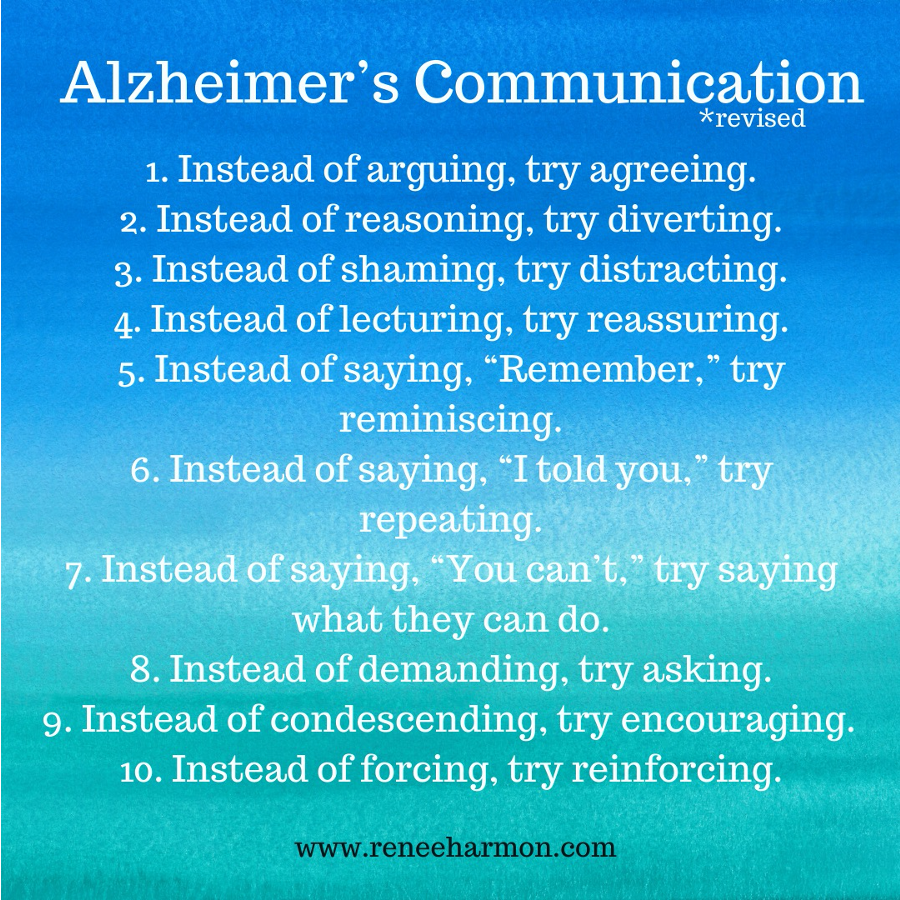
Well, here we are again with our list of communication tips. I revised it to make it less like commandments and more like suggestions.
The list doesn’t get easier, but then, nothing about Alzheimer’s disease is easy, is it?
I did find the fifth suggestion fairly easy once I figured it out. Your loved one may not be able to remember recent or past events. You just don’t know what they remember, so it’s fairly cruel to ask them if they remember something. I Instead of asking, “Do you remember when…?”, I would say, “I remember when…” Then I would just launch into a memory and tell the story of something that was important to the both of us. He would listen attentively, especially if I told the memory with inflection and emotion. Sometimes, but not often, my sharing of a memory would trigger his own memory, and he would verbalize it. I also found that I could repeat my favorite stories multiple times. They were new to him each time, and I loved relating my favorite moments over and over.
Oh, boy! Number six is a doozy. It’s so easy to say that you can just repeat your response to repeated questions, but darn, it’s hard not to lose your cool and say, “I’ve already told you that five times!” (Or ten or twenty). They can’t help it; they can’t remember that they already asked it. We know. But it’s so annoying! I remember the very first time the repeated question happened with Harvey. It was very early in his diagnosis, and at dinner one night, he asked me how my day had been. I responded, but not one minute later, he asked the same thing. I answered verbatim what I had said before, with the same inflection because it was so fresh in my mind. He looked up and said, “Oh, I already asked you that!” And I thought, “Alright, here we go!” I also discovered that it helped me keep my cool to answer the repeated questions slightly differently. It became a game for me in a way.
The seventh item reminds me of when Harvey wanted to borrow his parents’ riding lawn mower to cut our yard. Our yard was very steep, and I was terrified that he would tip over with it. He could still use the push mower, going across the hill, but doing that with the riding mower would have been dangerous. Luckily, I never had to tell him he couldn’t because the mower broke in transit to our house. I don’t really know how I would have handled the situation had the mower worked. Honestly though, I’m not at all sure that focusing on what they can do helps all that much when you have to tell your loved one they cannot do something.
I hope my honesty has given you permission to acknowledge your failures in speaking Alzheimer’s successfully. We can all do better.
Next week, I will look at the last of these suggestions.
2 Responses
Renee that’s some story but a true story love hearing your story about Dr Harvey miss yall
Thank you, Marion! I miss Harvey. I miss seeing you, too! Hope you are well!